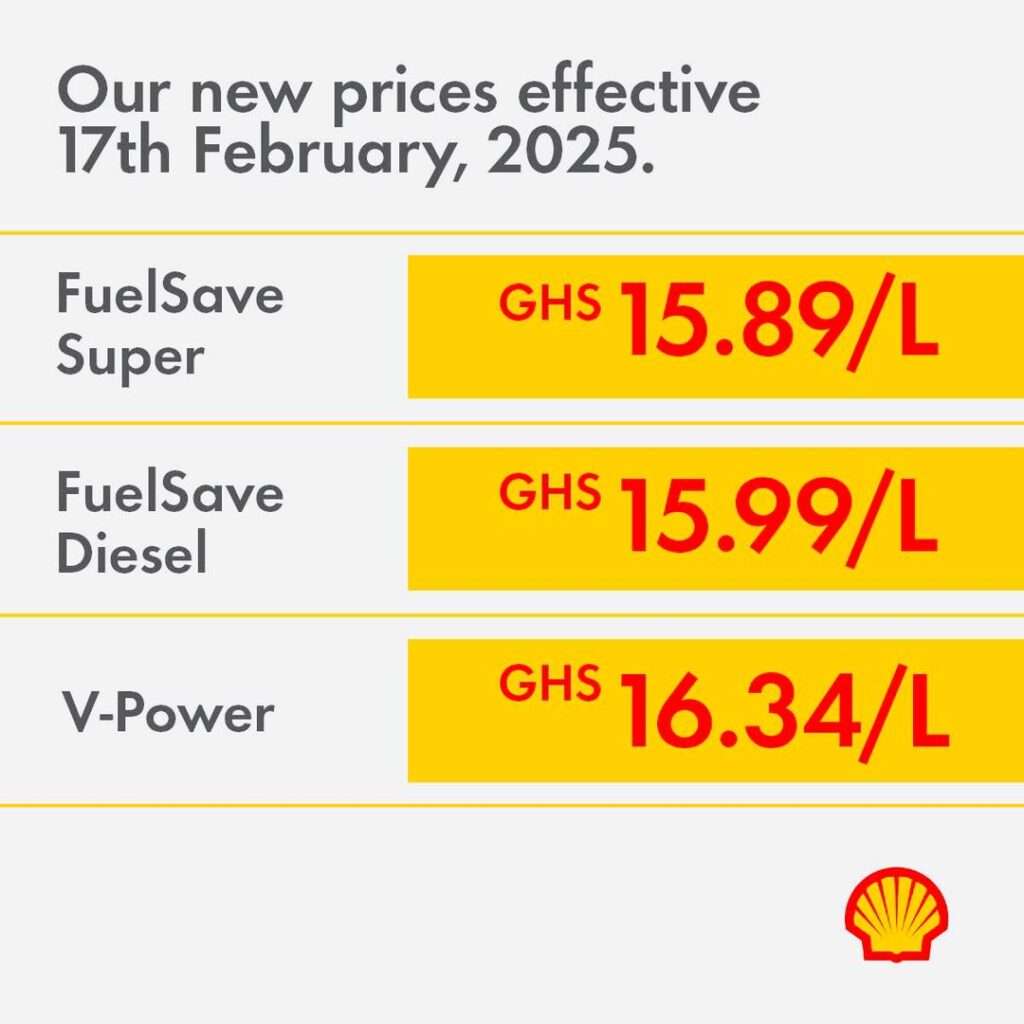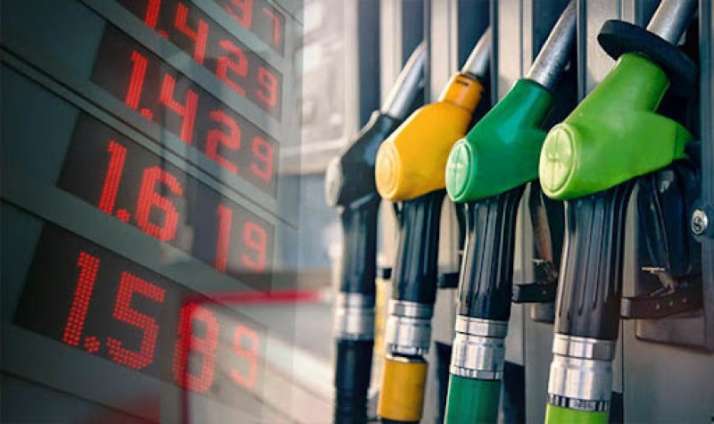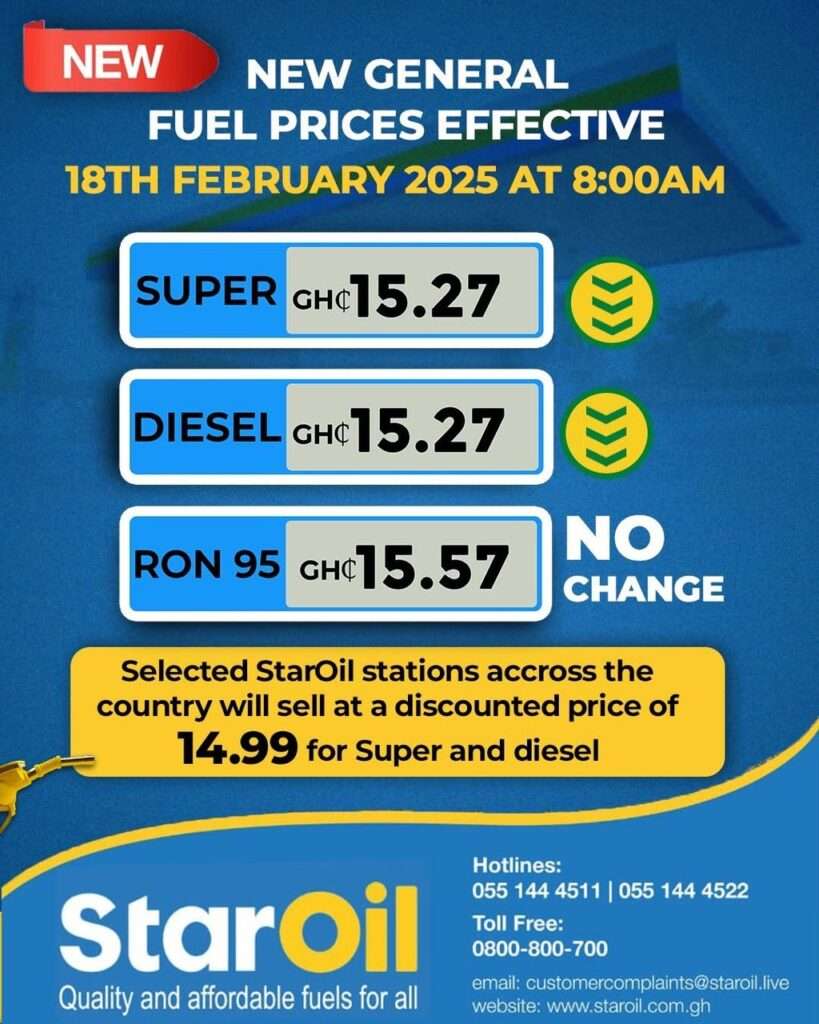The issue of inconsistent fuel prices across gas stations in Ghana has sparked increasing concerns about its impact on consumers, businesses, and the overall economy.
In the second pricing window of February, fuel prices have seen a significant reduction, with both petrol and diesel prices fluctuating across different Oil Marketing Companies (OMCs). This inconsistency has led to challenges for consumers, who are often left confused and frustrated by the price disparities.
These price variations between different OMCs have raised questions about the underlying factors contributing to this disparity.
Mr. Benjamin Nsiah, the Executive Director for the Centre for Environmental Management and Sustainable Energy, spoke with Vaultz News, highlighting several key reasons behind the inconsistencies in fuel prices across Ghanaian gas stations.
Mr. Nsiah explained that one of the primary reasons for the differences in fuel prices is the varying trade terms between the OMCs and Bulk Distribution Companies (BDCs), as well as the way OMCs handle their payments.
For instance, the petrol price for Shell dropped from GHȼ 16.23 to GHȼ15.89 per litre in the second pricing window of February. The price of diesel also reduced to GHȼ15.99 per litre from GHȼ16.09 in the first pricing window of February.

Meanwhile, Star Oil, another key player in the Ghanaian fuel market, has reduced its petrol price to GH₵15.27 per litre from GH₵15.37 per litre, and also reduced diesel price to GH₵15.27 per litre, a slight decrease from its previous price of GH₵15.37 per litre. However, selected StarOil stations across the country are selling at a discounted price of GH₵14.99 per litre for super and diesel.
Another contributing factor according to Mr. Nsiah is the pricing premiums that BDCs receive from international oil trading companies. “Because they have different premiums, BDCs are able to set different prices to their OMCs, which in turn affects the prices consumers pay at the pump,” Mr. Nsiah noted.
This premium variation is often based on the supply agreements between BDCs and the international oil traders, which in turn leads to different pricing strategies among the OMCs.
Mr. Nsiah also emphasized that certain OMCs, such as transport companies, do not rely as heavily on fuel margins. Instead, they rely on transportation margins to help recover their costs and make a profit.
“Some OMCs don’t rely much on the margins because transport companies make a lot of money from transporting fuel from the depots to the filling stations.”
Mr. Benjamin Nsiah, the Executive Director for the Centre for Environmental Management and Sustainable Energy
This allows them to absorb lower margins on fuel prices while still remaining profitable. Additionally, some OMCs may price their products at lower rates to sell larger volumes of fuel.
“Some OMCs believe that selling huge volumes gives them better profitability compared to selling fewer volumes.
“So, they will reduce their price and sell large quantities, which, if managed well, can lead to profitability.”
Mr. Benjamin Nsiah, the Executive Director for the Centre for Environmental Management and Sustainable Energy
Another factor contributing to the price differences is the varied cost structures of the OMCs. Each company has its own operational costs and markup requirements, which ultimately determine the price of fuel at the pump.
“Some OMCs have higher overhead costs, which means they need higher margins to recover their costs.
“On the other hand, smaller OMCs with lower overhead costs may be able to function with lower margins.”
Mr. Benjamin Nsiah, the Executive Director for the Centre for Environmental Management and Sustainable Energy
Addressing Fuel Price Disparities

The National Petroleum Authority (NPA), which is responsible for regulating the petroleum sector in Ghana, has a critical role to play in addressing the issue of inconsistent fuel prices.
Mr. Nsiah suggested that the NPA should better understand the cost structures of OMCs to ensure fairness in fuel pricing. “This would allow them to prevent OMCs from taking advantage of consumers by overpricing fuel,” Nsiah explained.
According to Mr. Nsiah, it is essential for the NPA to conduct thorough research on the petroleum downstream sector to better understand the average cost structure of the industry.
Armed with this data, the NPA could then set regulations that would prevent OMCs from charging excessively high prices based on inflated margins. He proposed the introduction of both price ceilings and price floors to standardize fuel prices across the market.
“A price ceiling would set the maximum price that an OMC could charge for fuel, while a price floor could establish the minimum price.
“This would help bridge the huge price discrepancies that we currently see in the market.”
Mr. Benjamin Nsiah, the Executive Director for the Centre for Environmental Management and Sustainable Energy
The introduction of price regulation measures would ensure that consumers across the country pay similar rates for fuel, regardless of which OMC they purchase from.
This would protect consumers, especially in areas where fuel prices tend to be higher than others, and help improve the overall fairness of the fuel market.
Mr. Nsiah also emphasized the importance of consumer behavior in driving fuel pricing trends.
“In Ghana, most people are not price-sensitive. As a result, OMCs continue to increase their prices without losing their customer base.”
Mr. Benjamin Nsiah, the Executive Director for the Centre for Environmental Management and Sustainable Energy
Mr. Nsiah believes that if consumers begin to pay closer attention to fuel prices and seek out cheaper options, it would force OMCs to reassess their pricing strategies.

The lack of price sensitivity among consumers has enabled some OMCs to maintain high prices, even when they could potentially lower them and still remain profitable.
However, if consumers were to prioritize affordability, it could lead to a more competitive market, with OMCs adjusting their prices to attract customers.
The issue of inconsistent fuel prices in Ghana remains a pressing challenge that requires immediate attention from regulatory bodies, industry players, and consumers alike.
Factors such as trade terms, cost structures, and business strategies contribute to the price disparities observed across different OMCs.
However, with improved monitoring, the introduction of pricing regulations, and increased consumer awareness, Ghana can move towards a more stable and transparent fuel pricing system.
Addressing these inconsistencies will not only ensure fair pricing for consumers but also enhance economic stability and competitiveness within the petroleum sector.
READ ALSO: Akufo-Addo Handed Over a Strong Economy – Tweneboah Fokuo























